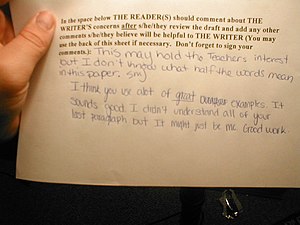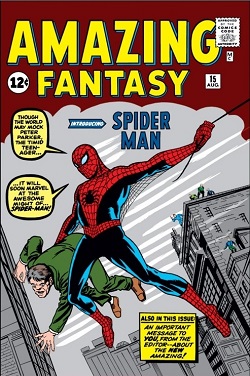Chapter 1.
“ISTHATTHEBESTYOUCANDO?” shouted
Veryl Evans as he raced past Damon.
“That’s not fair!” Damon shouted
back. “Hold still!”
Veryl—Vee, as he preferred—ran circles
around Damon, easily evading the darkspace. His voice seemed to come from everywhere. “If we were criminals, we wouldn’t hold
still.”
Damon
tried to make the darkspace come faster. But it came slowly, as always, a
gentle cloud flowing out from every pore of his body. By the time it
spread ten feet, Vee was cackling from the other side of Mackintosh Park.
Damon inhaled, making the darkspace
go away, and glowered. Vee could run
faster than anyone else in the district and, though six months younger than
Damon, was already a founding member of a club.
Damon, four months past his thirteenth birthday, still hadn’t been
invited to join a club.
That, he determined, was about to
change.
Damon turned to face his next opponent,
Danner (“Don’t call me Danny!”) Young. The fourteen-year-old liked to
show off by standing at six feet almost always, but, no matter how tall he
could grow, Damon would make sure it wasn’t tall enough.
Damon closed his eyes and inhaled,
envisioning the darkspace flowing straight up as far as it would go. When he opened his eyes, his “night
vision”activated. Only Damon could see
inside the darkspace, though everything appeared black and white, like an
old-time cartoon.
But Danner didn’t appear worried. He flexed his muscles and started to grow:
ten feet . . . fifteen . . . twenty.
Then, to Damon’s dismay, the older kid’s head disappeared—a sure sign
that he had grown too large for the darkspace.
Then his torso and legs turned confidently away from Damon and simply
walked out of the darkspace.
“HEY, DAMON!” someone close to him
shouted. “THAT’S A NEAT TRICK!”
Damon turned to face his third
opponent, Kyle Powell. At fifteen, Kyle
was the oldest member of the Power Club and the most powerful. So why
is he just standing in the dark, shivering?
No one could hear inside the
darkspace unless Damon wanted them to, so he willed a hole—“a soundspace,” he
called it—to open. “Hey, Kyle, why are
you just standing there looking stupid?”
If Kyle was embarrassed, he didn’t
show it. “I don’t teleport when I can’t
see where I’m going. Might merge with a
tree or something.”
Perfect.
If Damon could defeat Kyle, he’d be in the Power Club for sure.
“So, is this it?” Kyle said, looking
around at nothing. “Can your darkness do
anything else?”
It
doesn’t have to. Damon carefully closed the soundspace so Kyle wouldn’t
hear him. Then he ran toward Kyle. All I
have to do is trip him. A feeling of
immense power overcame him as approached the unsuspecting kid, then—
. . . fft!
Kyle disappeared—as did the
darkspace! Damon found himself
floating. He couldn’t sense anything. He felt as if his body were liquid, being
scrambled and rearranged. His head lay
on his torso. Now it jutted from under his
left knee. His thumb protruded from the
opposite side of his hand . . .
Normal sensation gradually returned. Blue sky . . . hot summer air . . . birds
chirping . . . and Damon found himself standing in mid air. He fell three feet to the ground, landed on
his feet, and fell to his back. The park
spun, and he felt sick.
He forced himself to sit up, not
believing what had just happened. Kyle teleported ME! He looked around and saw a huge, twenty-foot,
black cloud floating above where he’d been standing. Awesome!
It was his darkspace. The black cloud lingered like a small child
separated from its parent. Then, slowly,
it did something Damon had never seen it do before. It turned grey and vanished, leaving behind
its sole occupant, Kyle Powell.
Kyle jogged over to Damon.
“I thought you said you couldn’t
teleport when you can’t see where you’re going!” Damon scolded him.
“I said I don’t teleport. A sly grin came to Kyle’s lips. “But I keep my teleporter field on, just in
case.”
“But you could’ve—” As sensation in his legs returned, Damon
struggled to stand and talk at the same time.
“You could’ve teleported me
into a tree.”
“Nah. I know Mack Park pretty well. I just had to make sure you were a few feet
off the ground.”
Vee and Danner, who had returned to
his six-foot size, joined them. “You
musta tried to attack Kyle, didn’t ya?” Danner teased. “Don’t feel too bad. I used to do the same thing.”
“Yeah, but you tried to sneak up on me more than once,” Kyle responded. “Maybe Damon’s smart and will learn his lesson the first time.”
“Yeah, but you tried to sneak up on me more than once,” Kyle responded. “Maybe Damon’s smart and will learn his lesson the first time.”
They bantered back and forth like as
if they had known each other a long time.
But Damon felt both in and out of the group. He found himself laughing at jokes that
weren’t funny. “So, what happens next?”
“Now,” Vee answered, “we vote.”
“. . . in private,” Kyle
added.
Damon took the hint and jogged
several feet away toward the sandpit where a group of younger kids—ords,
probably—were playing on a slide. He
snuck a glance back once or twice to see the three Power Club members huddling
like football players. When he glanced
back a third time, Kyle was running toward him—alone.
Damon steeled himself.
“Your power’s okay,” Kyle began,
“but it’s not strong enough for the Power Club.
You need more practice.”











